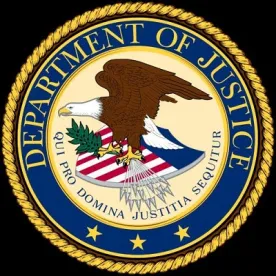The Department of Justice’s first Foreign Corrupt Practices Act opinion procedure release since 2014 provides insight into the DOJ’s likely treatment of a proposed payment to a foreign subsidiary of a foreign investment bank, where that subsidiary is majority-owned by a foreign government. The Aug. 14 release confirms that even where the facts are somewhat complicated, basic FCPA principles apply and the payment would not lead to enforcement under the FCPA. The release serves both as a reminder of some of the basic components of the FCPA and that guidance is available to the public on FCPA issues through the DOJ’s opinion release program.
The opinion release process allows any requestor that qualifies as an issuer or domestic concern under the FCPA to request an opinion of the U.S. attorney general regarding whether specific (not hypothetical) conduct would conform with the DOJ’s interpretation and enforcement policy around the anti-bribery provisions of the FCPA. The process can be long and involved; the request leading to the Aug. 14 guidance was originally submitted on Nov. 5, 2019 and involved five separate submissions of information to the DOJ. The opinion release is only binding on the requestor and it is dependent upon the submission of all relevant and accurate information by the requestor. Nevertheless, opinion procedure releases assist both the requestor and other entities in the market who may be looking for guidance on the DOJ’s likely treatment of a situation with the potential to implicate the FCPA. The DOJ maintains an index of all FCPA opinion releases by topic, including links to each opinion.
The Aug. 14 release addresses a situation in which the requestor, a United States firm (a “domestic concern” under the FCPA), sought guidance as to whether a payment to a foreign subsidiary of a foreign investment bank would violate the FCPA. The payment was proposed to be made in connection with the successful purchase by the U.S. firm of a portfolio of assets from the foreign investment bank (a majority of the shares of which is indirectly owned by a foreign government). The subsidiary had provided services meriting a fee, and the requestor presented evidence that the proposed fee was commercially reasonable. Nevertheless, the requestor sought a determination of whether the payment would result in an FCPA enforcement action.
This particular request presents somewhat unique and complex facts. The underlying principles reiterated in the DOJ’s guidance, however, are quite useful. Among other things, the DOJ notes that, because the payment is to an entity, not an individual, and there is no indication it will be diverted to an individual foreign official, it does not fall under the FCPA. Additionally, the DOJ notes that there is no indicia that the payment would be intended to corruptly influence a foreign official, and no evidence of a corrupt offer or promise in connection with the payment. Finally, the DOJ cites that the fee is commercially reasonable and commensurate with the services provided.




 />i
/>i

